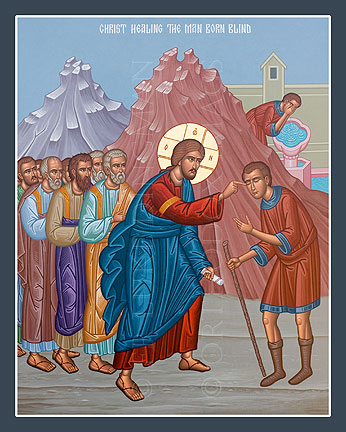“In your case, Dad, it was definitely sin.” “Thanks, son.” He’s supposed to be an arrow in my quiver (Psa. 127:4)?
After my younger son, Noah read my blog entitled “The Silence of Lamb” he knew the answer to the question posed at the end (“Does sin cause illness?”). Thanks for comments, encouragement and prayers Marcia, Gary, Tanya, Shanlamb, Joanne, Margie, Diane, Kenyon, Gotbygrace and Miley.
For the past few months I have had damage to my vocal cords (nodes) and since I saw my ENT in August, I have been trying to not speak unless absolutely necessary. Last week I canceled 5 speaking engagements in October. This has been brutal for me as an Extrovert. I have been cycling through one of the most discouraging periods of my life. Since I can’t speak, blogging helps me process it.
To address the question, there are examples of people in the Bible who were punished by God with illness (Kenyon listed these):
1) Zechariah (Luke 1).
2) Miriam (Num. 12).
3) Gehazi, Elisha’s servant (2 Kings 5).
4) The paralytic at the pool (John 5:14).
Other texts make it clear that God both wounds and heals (Exo. 4:11; Deut. 32:39). God also brings a plague upon his people for their idolatry (Num. 25).
 But then there are other text that make it clear that sometimes innocent people suffer (yes, all humans are generally sinful). Jesus declares that the man born blind was innocent (John 9:3; image source here). The most obvious of an innocent sufferer is Job (Job). Job’s story is a bit confusing because the adversary (ha-satan in Hebrew) brings on the sickness, but God allowed it. In any case, Job was righteous (Job 1:1, 8).
But then there are other text that make it clear that sometimes innocent people suffer (yes, all humans are generally sinful). Jesus declares that the man born blind was innocent (John 9:3; image source here). The most obvious of an innocent sufferer is Job (Job). Job’s story is a bit confusing because the adversary (ha-satan in Hebrew) brings on the sickness, but God allowed it. In any case, Job was righteous (Job 1:1, 8).
Frequently, innocent people suffer for the sin of others. In a contrast to the plague of Numbers 25, God sends a plague on Israel due to David’s sin of taking a census (2 Sam. 24–although this one is tricky because YHWH incited him to do it in the first place, hmm…).
So, it takes wisdom to decide, “Is this suffering brought on:
1) By my own sin?
2) By other’s sin?
3) By Satan?
4) To test me?
In her comments, Tanya wisely cautions us from making hasty decisions about the sins of others causing their sickness. This attitude is what Jesus responded so strongly against with the man born blind (John 9:3). We can ask this question for ourselves, but only rarely should we attempt to make judgments for others.
Honestly, I think Noah was right. Part of my sickness is due to my sin. And like Gary said, I need to repent, which I’ve done, and then bear fruits that befit repentance, which I’m trying to do.
The clearest thing we see from the Gospels is that Jesus wanted to heal sickness. This is a major theme of the gospels that is unfortunately often ignored (outside of the charismatic movement).
But I also think God is trying to teach me something during this period of the Silence of Dave Lamb, and I’ll be focusing on those lessons in the next blog in this series.
What lessons does God teach us through sickness?
